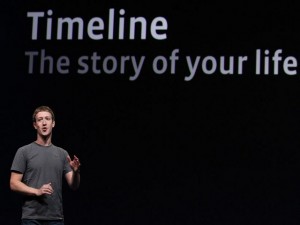
The Power of Now: A Guide to Spiritual Enlightenment by Eckhart Tolle
My rating: 4 of 5 stars
I… um… “enjoyed” The Power of Now in audiobook form — difficult choice of words here because “read” would be a lie and “listened to” would make it Power of Now sound like a song. I guess audiobooks need their own transitive verb now. Anyway.
Audiobooks have their strengths and weaknesses, obviously. I had the pleasure to enjoy the Power of Now as I was exploring a part of my city that had long been invitingly mysterious and still. The setting reinforced the listening and vice versa. The experience would have certainly been very different had I visually read the book in that jungle of reed. Those hours of exploration are now inseperably interwoven with the listening in my mind. I touched the Power of Now as described in the book while I was there; my attention was not in the past, nor in the future, it was squarely focused on my ears and eyes. I didn’t finish it during that exploration, however, and most of my subsequent listenings were rife with inattention. I thus have problems now remembering which parts I do not have any recollection of; I have no page to turn to. When you’re visually reading a book, the lack of memory is connected with an image related to the book — perhaps a page number or even the visual arrangement of the page, the shape of all the letters in tandem jumping out to create a subconscious bookmark. When aurally reading a book, this image is connected with the surroundings, especially if one listens to the book when using mass transit and all kinds of faces and other people are there to capture the attention and fantasy in ways reeds cannot.
Enough with describing the medium. The book in itself is very good. I did not find Tolle awfully didactic and the Q&As through which he chose to convey his teachings were satisfactory catalysts for bringing out what he wanted to say. Neither was I annoyed with his “recycling” of old teachings; essentially, that’s what religions have been doing anyway, repackaging old wisdom in different flavours. His message is more important and relevant now than it ever was, what with our lifestyle crisis and general existential confusion: 1) There is no past or future, only present. Giving in to dominance of the mind filters out true consciousness and presence (as in being in the moment wherever and whenever one is, not in the past and future) 2) People’s minds are imposters pretending to be their true selves and worrying about all sorts of things when there is no real reason for it.
What I found slighlty annoying was his insistence on quoting Jesus. Then again, my being annoyed with Jesus is only part of being disgusted by the church and naturally connecting hiw with it. That is however, as I understand it, a logical fallacy (I would like to mention at this point that discrediting the book because Oprah popularised it is comitting the very same fallacy). To do Tolle justice he does say that he’s not in that way supporting Christianity over other religions (he often quotes Buddha as well as other enlightened figures of the past), he’s merely putting Jesus’ words ouf ot the context of that religion and into the context of the shared meaning behind all religions, of course with added stress to Eastern philosophies which emphasise more strongly on those aspects than the –generally moralistic– monotheistic ones.
Now that I’m trying to sum up the actual contents of this book I’m finding it hard to describe, even though I think I did get the gist of it. If I knew how to accurately and meaningfully reproduce it I wouldn’t have felt the need to read it. I guess “true wisdom cannot be shared through words; it lies within and waits for the right wake up call”. Yep, it’s one of those…

